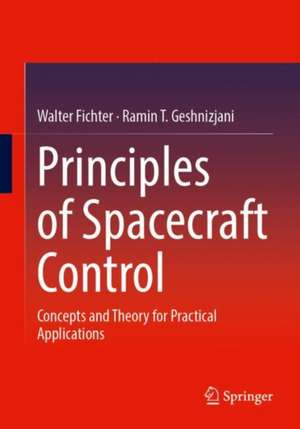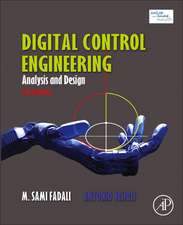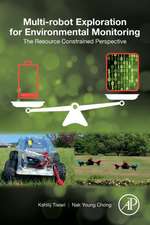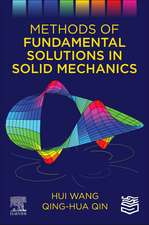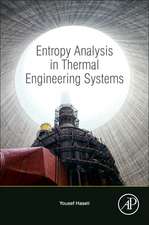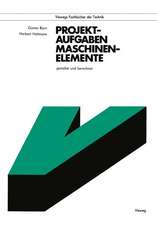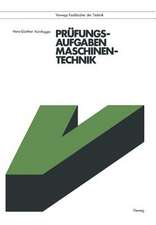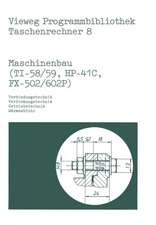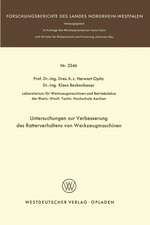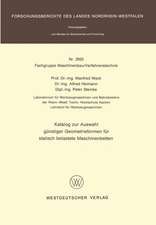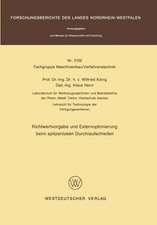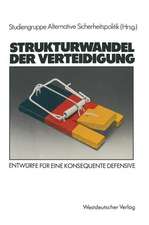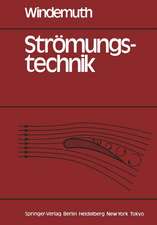Principles of Spacecraft Control: Concepts and Theory for Practical Applications
Autor Walter Fichter, Ramin T. Geshnizjanien Limba Engleză Paperback – 12 oct 2022
Preț: 358.11 lei
Nou
Puncte Express: 537
Preț estimativ în valută:
68.53€ • 74.42$ • 57.57£
68.53€ • 74.42$ • 57.57£
Carte disponibilă
Livrare economică 01-15 aprilie
Livrare express 15-21 martie pentru 30.17 lei
Preluare comenzi: 021 569.72.76
Specificații
ISBN-13: 9783031047794
ISBN-10: 3031047796
Pagini: 193
Ilustrații: XVII, 193 p. 63 illus., 24 illus. in color.
Dimensiuni: 168 x 240 x 15 mm
Greutate: 0.34 kg
Ediția:1st ed. 2023
Editura: Springer International Publishing
Colecția Springer
Locul publicării:Cham, Switzerland
ISBN-10: 3031047796
Pagini: 193
Ilustrații: XVII, 193 p. 63 illus., 24 illus. in color.
Dimensiuni: 168 x 240 x 15 mm
Greutate: 0.34 kg
Ediția:1st ed. 2023
Editura: Springer International Publishing
Colecția Springer
Locul publicării:Cham, Switzerland
Cuprins
System Engineering Basics.- Satellite Motion Models.- Rotational State Determination.- Actuator Commanding.- Attitude and Momentum Control.- Accelerometers and Drag-Free Control.- Closing Remarks.
Notă biografică
Walter Fichter has been in industry for many years, working in the field of guidance, navigation, and controls for spacecraft. Since 2007 he is professor of flight mechanics and controls at the University of Stuttgart. His current research interests include autonomy of aerospace vehicles, intelligent flight, guidance and control of UAVs and urban air mobility vehicles.
Ramin Geshnizjani was a researcher at the Institute of Flight Mechanics and Controls of the University of Stuttgart and now works as a development engineer in the aerospace industry. His research interests and current activities include attitude control of agile spacecraft with control moment gyros, navigation and state estimation, and pointing control.
Ramin Geshnizjani was a researcher at the Institute of Flight Mechanics and Controls of the University of Stuttgart and now works as a development engineer in the aerospace industry. His research interests and current activities include attitude control of agile spacecraft with control moment gyros, navigation and state estimation, and pointing control.
Textul de pe ultima copertă
The objective of this textbook is to provide the mathematical models and algorithms needed to develop a thorough understanding of all control system functions of a rigid body spacecraft. Relatively simple, but practically applicable algorithms are presented rather than recent advances. We try to avoid detailed and specialized issues that are of less importance for the fundamental understanding, such as detailed environment models, etc. Furthermore, control problems that can be cast in standard formulations and solved with existing methods are not treated here. Instead, we intend to provide an understanding of the principles, put them in an engineering context, and try to give all explanations as concise as possible. Besides conventional three-axis attitude control systems, the following topics are treated in this book:
- Control of agile rotation maneuvers using control moment gyros
- Precise pointing control with error classes for pointing instruments
- Control systems with accelerometers and free-flying test masses, which provide low-disturbance or disturbance-free environments
We believe that these topics are of considerable relevance for the design of future spacecraft control systems, especially in the field of science and Earth observation missions.
The Authors
Walter Fichter has been in industry for many years, working in the field of guidance, navigation, and controls for spacecraft. Since 2007 he is professor of flight mechanics and controls at the University of Stuttgart. His current research interests include autonomy of aerospace vehicles, intelligent flight, guidance and control of UAVs and urban air mobility vehicles.
Ramin Geshnizjani was a researcher at the Institute of Flight Mechanics and Controls of the University of Stuttgart and now works as a development engineer in the aerospace industry. His research interestsand current activities include attitude control of agile spacecraft with control moment gyros, navigation and state estimation, and pointing control.
Caracteristici
Overview of all spacecraft control tasks Practically usable algorithms for attitude control, momentum control and drag-free control Simple algorithms for attitude determination and commanding of spacecraft actuators
